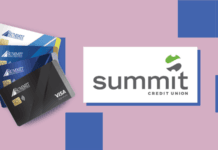Table of Contents
Applying for a credit card is essential when contemplating your finances. It can be an excellent door for college-going students to manage all their expenses and create a financial track record. But the real question is – is it possible for a student to get a credit card without a regular income source?
There are some credit cards for students who need more income to untangle all their financial woes. But it’s important to get the answer to all your questions.
So, let’s get started with,
Is it Possible to Get Credit Cards for Students With No Income?
Well, the answer may stun you, but yes, you can get credit cards for students even if you don’t have any regular income. Student credit cards have lower income requirements in comparison to standard credit cards. These cards depict that students may depend on sources rather than a tedious job for financial independence, including allowances, scholarships, or help from family members.
Additionally, some credit card issuers take a holistic approach to evaluating student credit card applications. The evaluation process must consider factors such as academic status, credit history, and potential income.
To increase your possibility of getting a credit card for students with no income:
Include all support sources: When applying for credit cards for students with no income, be sure to list all forms of financial support you get, such as allowances, scholarships, or contributions from family members. These give an exact picture of your financial condition.
Pick low or no annual fee cards: There are several credit cards for students with no annual fees, which helps to keep your costs down.
Apply for student-specific cards: Search for credit cards that are specifically created for students because they tend to have more accommodating needs of income.
Start building credit: Consider options such as secured credit cards or becoming an authorized user on a family member’s card to create a credit history.
What to Write for Income When Applying for a Student Credit Card?
When applying for a student credit card, you must add the source(s) of income (if you have one), even if they’re not from the employment. Some sources of income are financial support from family members, scholarships, or grants.
You should be transparent while filling out an application form. But be careful, as overestimating your income can lead to financial woes, and it’s preferable to depict the exact status of your financial condition.
Moreover, some credit card applications may permit you to show your household income or other income sources. It can be beneficial if you share financial support or expenses with family members or have several sources of income.
Now, can you tell me what you can count as an income? If not! Then look here:
Allowances: If you’re receiving regular allowances from your parents or guardians, including allowances as your income source is preferable.
Scholarships and grants: Yes, you heard it right! Scholarships and grants are considered as income. During your school days, these funds contribute to your overall income, which makes you eligible for specific credit cards.
Spouse or partner income: If you’re married or in a relationship with someone and are accessing your partner’s income, that income can be included as household income while filling out an application form for student credit cards.
Employment income includes salaries or wages you receive from your job. This income source provides a clear picture of your financial status.
Investment income: Investment income like earning interest and dividends from savings accounts or investments in bonds, stocks, and securities are also a great source of income.
5 Best Credit Cards for Students With No Income
1. Discover it® Student Cash Back Card
The Discover it Student Cash Back Card is among the best credit cards for low-income students. It provides an excellent reward rate on various spending categories that annually change for a card and does not need any credit score to apply. It also has attractive features like a welcome bonus, cash back rewards & benefits, and no annual fees.

Other card details:
- Free access to your FICO score
- Discover’s Freeze it® feature.
- Social Security number Dark Web alerts (when you enroll)
Rewards: Once activated, you can earn 5% cash back at different places each quarter up to the quarterly maximum and 1% cash back on all other purchases.
Welcome bonus: Discover will automatically match all cash back earned by card members at the end of their first year.
Intro purchase APR: 0% for six months.
Annual fees: $0.
Foreign transaction fees: None
2. Capital One Quicksilver Student Cash Rewards Credit Card*
The Capital One Quicksilver Student Cash Rewards Credit Card provides 10 percent cash back on Uber Eats and Uber, 5 percent on rental cars and hotels booked via Capital One Travel, and 1.5 percent on other purchases.
This reward structure attracts students looking for student credit cards and various rewards. Nevertheless, this card will also cover your one-month Uber membership fee through 14 November 2024.

Other card details:
- Credit reports and credit score alerts
- 50% off handcrafted beverages
- Travel assistance
- Travel accident insurance
- Extended warranty protection
- Account alerts
- Concierge service
- Virtual card numbers
- Card lock
Rewards: 10% cash back on Uber & Uber Eats through 11/14/2024, 5% cash back on hotels and rental cars booked through Capital One Travel, and 1.5% cash back on every other purchase.
Welcome bonus: $50 cash bonus after spending $100 on purchases in the first three months of account opening.
Purchase Rate: 19.99% – 29.99% variable APR
Annual fees: $0
Foreign transaction fees: None
3. Capital One SavorOne Student Cash Rewards Credit Card*
The Capital One SavorOne Student Cash Rewards Credit Card is one of the best credit cards for students with no income as it provides an excellent reward rate on things students are likely to spend the money on, such as dining out and entertainment. You can even take your cash rewards as a statement credit against a redemption structure or purchases.

Other card details:
- Concierge Service
- Extended warranty
- 24-hour travel assistance services
- Instant purchase notifications
- 50% off handcrafted b
- Travel accident insurance
Rewards: 10% cash back on Uber & Uber Eats through 11/14/2024, 3% cash back on dining, entertainment, popular streaming services, and grocery stores (excluding superstores like Walmart and Target), 5% cash back on hotels and rental cars booked through Capital One Travel, 8% cash back on Capital One Entertainment purchases and 1% cash back on all other purchases.
Welcome bonus: $50 cash bonus after spending $100 on purchases in the first three months of account opening.
Purchase Rate: 19.99% – 29.99% variable APR
Annual fees: $0
Foreign transaction fees: None
4. Discover it® Student Chrome
If you are seeking a simpler reward structure, consider Discover it Student Chrome. It provides great cash back rewards at restaurants and gas stations, an intro APR promotion for six months, and a seamless match of all the cash back received at the end of the first cardmember year.

Other card details:
- Online privacy protection
- Low intro APR
- Track and redeem cashback rewards
- Free Social Security number alerts
- Discover’s Freeze it® feature
- customer service from mobile applications.
Rewards: 2% cash back at gas stations and restaurants on up to $1,000 in combined purchases each quarter and 1% cash back on all other purchases.
Welcome bonus: Discover will automatically match all the cash back earned at the end of the first cardmember year.
Intro APR: 0% Intro APR for six months on purchases. Then, 18.24% – 27.24% Standard Variable Purchase APR will apply.
Annual fees: $0
Foreign transaction fees: None
5. BankAmericard® Credit Card for Students*
If you are looking to finance a large purchase over many months, high-interest credit cards are usually not a good option, as interest rates can quickly increase. But BankAmericard Credit Card for Students can offer an extended time to pay off that purchase without paying any interest. It provides 0 percent APR on balance transfers and purchases for 18 billing cycles, followed by the standard APR of 16.24% to 26.24% variable.
Balance transfers should be completed in a duration of 2 months. A transfer fee of 3 percent of each transaction performed within 2 months of opening an account. After this, the transaction fee will be 4 percent of each transaction.

Other card details:
- $0 liability guarantee for fraudulent transactions
- Contactless chip technology
- Overdraft protection
- Digital wallet technology
- Paperless statement option
- Mobile and online banking
- Free access to your FICO score
- Account alerts
Rewards: None
Welcome bonus: None
Introductory APR: 0% for 18 billing cycles
Standard APR: 16.24% – 26.24% variable
Annual fees: $0
Foreign transaction fees: 3% of the U.S. dollar amount of each transaction made in a foreign currency.
How to Pick Credit Cards for Students with No Income?
Getting approved for a credit card despite a lack of information or credit can be problematic, but it’s possible when it comes to applying for a student credit card. If that’s the case, you are on the right platform. The first step will be looking for the right credit card you want approved.
Look for the terms and conditions and other necessary details while selecting a credit card for students with no income. Afterward, visit the card issuer’s website and fill out the application form, or contact the card issuer to apply over the phone.
Your application may get processed in a few hours or days after getting a call from a card issuer. Don’t lie on the application form as it may cause you. Provide exact and true information to help card issuers quickly process your application.
Once issued, you must receive a card by email, and in some cases, you may receive a virtual card number for online usage. Applying for a credit card may be a complex and stressful process. But once you’re done with it, you can enjoy all the benefits of a student credit card.
Now let’s look into some significant features that always help in turning the tables around:
1. Annual Fees
The first and foremost feature you must consider regarding credit cards for students with no income is checking the annual fees. Students always avoid irrelevant costs, so opt for the no annual fees or fees cards.
2. Interest Rates (APR)
Most credit cards for students come with high interest rates. However, you can avert these charges by paying your monthly balance in full. Comparing the APR of different cards you’re looking to choose will help you get the best credit cards for students with no income.
3. Welcome Bonus
Some credit cards provide higher welcome bonuses for students than others. Here, the importance of spending requirements is counted. Ensure that you can fulfill the minimum threshold without any extra spending.
4. Reward Rates
It’s good to consider credit cards for students that provide huge rewards or cash back where you make spending in specific categories.
5. Introductory Offers
Choose credit cards with eye-catching introductory offers, like bonus rewards for spending a specific amount or 0% APR for the first few months. If you take advantage of introductory offers, do not leverage them to overspend.
6. Foreign Transaction Fees
If you’re planning to travel or study abroad, it’s crucial to check that the card charges any foreign transaction fees. It’s good to avoid choosing a card with no foreign transaction fees to avoid additional costs.
7. Credit Education Resources
Some credit card issuers provide educational resources to help you make financial habits and understand credit. Always go for credit cards that provide such resources to students.
8. Credit Building Opportunities
Don’t take advantage of every opportunity that helps build credit opportunities, like building a credit history. See if the card issuer reports to the three credit bureaus (Experian, TransUnion, and Equifax).
Which Steps Do You Need to Consider When Building Credit with a Student Credit Card?
After receiving your card, you need to consider some crucial steps and tips to help you build credit. Let’s highlight them:
1. Pay in Full Every Month
Paying full every month won’t negatively impact your credit history. However, it will prevent interest charges from being added to an unpaid balance.
2. Pay on Time Every Month
The significant factor in increasing your credit score is your payment history. That’s why it’s essential to make a reminder and pay all your bills in a timely manner. If you miss out on paying on a due date, try to pay your balance faster, as missed payments take one month to get reported to the credit bureaus after passing the due date. However, in such a case, you may be charged a penalty APR or late fee.
3. Use the Card Sparingly
While several student credit cards offer purchasing rewards, they also have low credit limits. The percentage of your credit limit, or Credit Utilization Ratio (CUR), you’re leveraging at a time, is a crucial factor in increasing your credit score.
4. Keep Tabs on Your Credit Score:
Many banks and card issuers allow you to access your credit score via the website or by downloading the application on your desktop or mobile phone. It’s equally essential to understand all the key aspects that have a major impact on your score. You need to make sure that you are responsibly controlling your credit, and in these circumstances, your reward will result in getting an excellent credit score over time.
Still, if your application didn’t get approved for student credit cards, ask your loved ones or parents to add you to their credit card account (as an authorized user). The authorized user status can help you increase your credit score and credit history as long as the primary account holder uses the account effectively and responsibly.
What’s Next?
You can easily search for credit cards for students with no income. Student credit cards are designed to meet their different financial circumstances and usually have lower income requirements than standard cards.
To increase your chances of getting approved for student credit cards, you must be transparent regarding your financial status while filling out the application form. Looking for the key features before getting a credit card could be a significant turn-around on your financial wealth.
Build a positive credit history by leveraging your card effectively and making all the timely payments.
For more financial and expert advice on credit cards, stay tuned with us!



